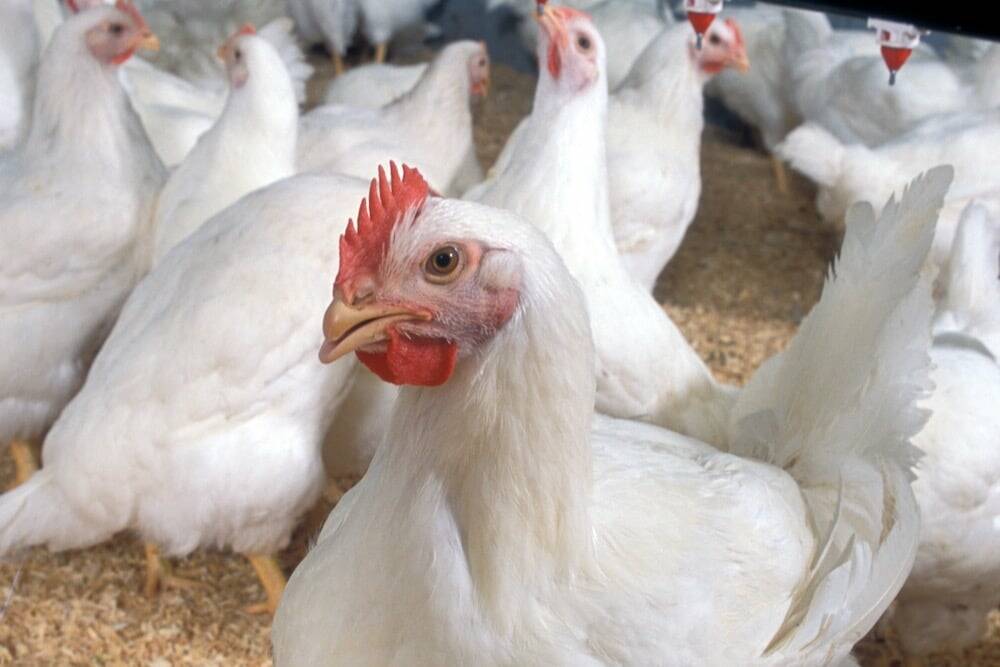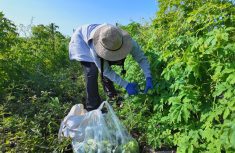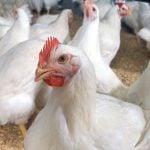[Updated: Feb. 7, 2025] This article has been updated with comments from the chair of the Ontario Fruit and Vegetable Growers’ Association.
Canada’s temporary foreign worker (TFW) program is “inherently exploitative and discriminatory,” and violates Canada’s international obligations according to a report from Amnesty International released today.
The report, titled “Canada has Destroyed Me”: Labour Exploitation of Migrant Workers in Canada was based on interviews a human rights group conducted with 44 migrant workers from 14 countries in Ontario and Quebec. It claims some of their cases amounted to violations of domestic anti-slavery and anti-trafficking legislation.
Read Also

Bird flu cases increase across Europe, Japan
New bird flu outbreaks were reported in several European countries and Japan this week
Canada’s TFW system been under increased scrutiny recently with Immigration Minister Marc Miller calling the era of an “unlimited supply of cheap labour” over in a November speech. His comments followed several reforms to the program, including limitations to numbers in areas with low unemployment and stricter oversight in “high-risk areas.”
Amnesty’s report also concluded that Canada’s system constitutes racial discrimination, given the makeup of migrant workers primarily coming from Central America and the Caribbean, saying “the regulations, which are on their face race-neutral, have in fact, disproportionate impacts on racialized groups.”
Amnesty’s recommendations to the federal government include:
- Granting open work permits to TFW program participants and abolishing closed permits/visas to allow workers to “change employers and jobs freely.”
- Overhauling the program to address systemic discrimination.
- Removing eligibility criteria for permanent residency which discriminate against “low-skilled workers.”
- Working with provincial authorities to improve TFWs’ access to healthcare and adequate housing.
- Ensuring migrant workers have ways to voice complaints and report cases of human rights abuses.
This isn’t the first time the Temporary Foreign Worker program has been flagged for human rights concerns. In 2023, a United Nations special rapporteur called the program a “breeding ground for contemporary forms of slavery.” A subsequent report called for reforms including an end to closed work permits, pathways to permanent residency, and addressing barriers to adequate healthcare and housing.
On Jan. 31, Shawn Brenn, Chair of the Ontario Fruit and Vegetable Growers’ Association (OFVGA) responded to Amnesty’s findings in a written statement sent to Farmtario.
“We understand and share the concern for the well-being of the workers,” Brenn wrote. “However, these reports, along with the proposed recommendation of permanent residency and open-work permits as a solution, are often presented in a way that overlooks or dismisses the various existing avenues available to workers who wish to leave an incompatible or hostile workplace.”
“The current mobility options within the Seasonal Agricultural Worker Program are the result of decades of continuous improvements to the transfer process, developed in close collaboration with participating countries. This program sets the gold standard for TFW streams, and we take great pride in that.”
A Senate report in May called for an independent agency to coordinate TFW and migrant labour policy to address a chaotic system and mistreatment of workers.

















